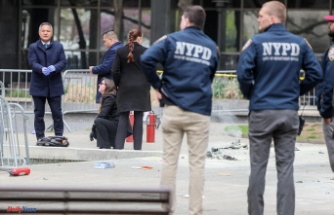The debate over how St. Paul residents elect city leaders is heating up again.
The city started using ranked-choice voting in 2011, forgoing primaries and putting all the candidates on the ballot to be ranked. Supporters say it has been a more inclusive way to elect city leaders and resulted in people with the broadest support winning. Opponents, who are beginning the push to return to the primary system, say it is confusing and has failed to produce the promised growth in voter turnout.
The two sides squared off this week at a sparsely attended town hall forum. But behind the scenes, the debate over the topic had already begun. On Monday, Charter Commission Member Chuck Repke plans to propose a change to the city's charter to eliminate the ranked choice system. The proposal has already met resistance from City Council members.
Five St. Paul City Council members wrote a letter to the city's Charter Commission in December saying they were concerned about efforts to repeal ranked-choice voting. They asked the commission to block any proposals that would do away with the process.
"[Ranked-choice voting] is good for our democracy. It is good for St. Paul. Please stand with us against special interests and in favor of giving all St. Paul voters the voice they deserve," said the letter, signed by all the council members except Dan Bostrom and Chris Tolbert.
Mayoral candidates Dai Thao and Elizabeth Dickinson followed up on the City Council's letter with another note to the Charter Commission this week, arguing that campaigns are less likely to engage in political attacks when there are more than two candidates on the ballot. Instead, they said, it leads to a greater focus on the issues and building coalitions.
Return to primaries?
If the Charter Commission wants to remove the ranked process, the City Council would have to approve the change — apparently a no-go — or the commission could put the issue on the ballot and let voters decide. Last time that happened, in 2009, voters supported ranked-choice voting, 52-48.
Shawn Towle, one of the leading opponents of the current system, said he thinks people have changed their minds. They have seen how confusing it has been, with many people failing to rank candidates correctly, he said.
If the Charter Commission does not want to remove ranked-choice voting, Towle said he plans to gather the thousands of signatures he would then need to put it on the ballot this fall.
Both Repke and Bostrom agreed with Towle. The primary system whittles down the pack of candidates so a couple people can have in-depth discussions about city issues, Bostrom said. With ranked-choice voting there are too many people on the ballot and voters do not get enough detail about any one candidate, he said.
"[The primary process] worked for a long, long time. I think it worked well, and I haven't seen any benefit out of this at all," Bostrom said of the ranked-choice system.
But supporters pointed to Minneapolis, where a poll of voters in 2013 found 68 percent wanted to continue using the ranked choice method and 85 percent found it simple to use, even with 35 candidates on the ballot for mayor that year.
This will be the first mayoral election in St. Paul without an incumbent where the new system is used. It is a "year of opportunity" to test the ranked choice method, Jeanne Massey, director of ranked-voting advocacy group FairVote Minnesota, said at Wednesday's town hall.
FairVote sent a message to supporters this week urging them to contact Charter Commission members and tell them to keep the system.
The ranked process gives voters more power because it gives them more options, Massey said. Some St. Paul insiders feel their power in the election process is being taken away by the ranked-choice system, she said, and that's why there is a push to remove it.
Towle said he's "agnostic" about the outcome of the mayor's race and just wants a fair system.
Our editors found this article on this site using Google and regenerated it for our readers.












